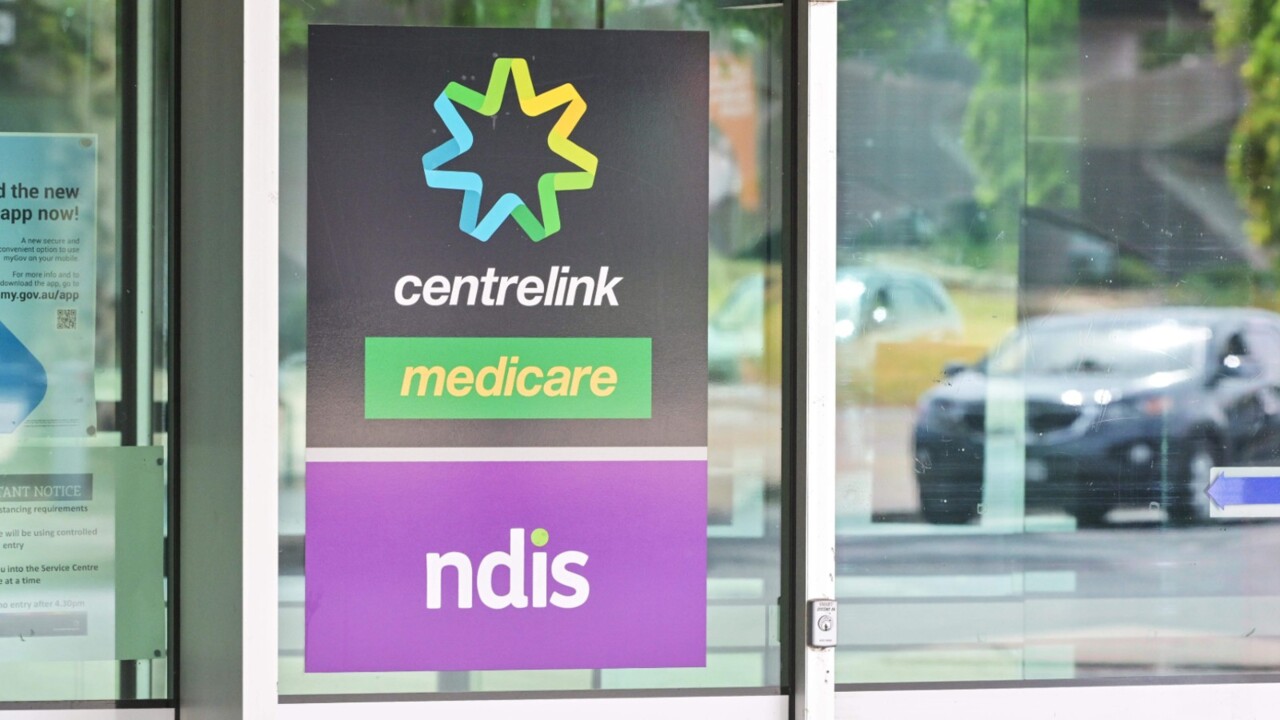$2bn NDIS ‘top up’ payments in one year for just 25,000 participants
Bill Shorten says ‘the party is over’ for dodgy NDIS plan managers pushing people with disability to exhaust their scheme funding and then claim an urgent ‘top up’.

More than $2bn was spent on NDIS “top-ups” in one year for just 25,000 of the scheme’s 640,000 participants who had blown through their budgets, despite 90 per cent of them having a plan manager or support co-ordinator overseeing the spending.
And 3500 of those overspent their budgets by around $800m in the year to February, data reveals.
A deep dive into National Disability Insurance Scheme claims has found “intraplan inflation”, which includes participants spending their funding either too quickly or on non-disability-related supports and then receiving a top-up, had blown out the NDIS budget by $3.3bn in just one year.
Some non-disability supports claimed included mobile phones, treadmills, theme park passes, TV antennas and even bird seed, the National Disability Insurance Agency analysis found.
NDIS Minister Bill Shorten declared the “party is over” for unscrupulous plan managers and support co-ordinators rorting the system and driving cost overruns.

“We know most intermediaries, including the vast majority of local area co-ordinators, are delivering really great outcomes, but we also know some are exploiting participants and the taxpayer,” he said. “We are seeing many cases where plan managers are facilitating an early exhaustion of a plan and then contacting the NDIA demanding a reassessment and a funding increase. This exploitation is inexcusable and has to stop. I want my message to be clear – the party is over.”
The NDIA and NDIS Quality and Safeguards Commission will write to 7500 plan managers and support co-ordinators this week warning their activity is being closely monitored. Currently the NDIS pays $500m a year for plan managers to co-ordinate support for scheme participants.
About 100,000 participants exhausted their budget before the end of their plan period, analysis reveals, leading to $3.3bn in top-ups. Of the 25,000 NDIS participants who had received over $2bn in additional funding after their original funding had been used up, 90 per cent had a plan manager or support co-ordinator.
The NDIA also said anonymised data matching of 900 plan managers’ business and taxation records revealed 343 would have failed a statement of tax record, which shows satisfactory engagement with the tax system, at the time they were receiving government funds.
Mr Shorten said while many plan managers and support co-ordinators were doing the right thing, this data was helping uncover the “dodgy providers”.
“We know in some circumstances unexpected things happen and people do need more support before the end of their plan, but the analysis by the NDIA has found (topping up) is happening far too often and tells us something is not right with the Scheme,” he said. “NDIS plan managers and support co-ordinators have a significant role in supporting participants to spend appropriately within their plans but the data and anecdotal evidence shows that in many cases this is not happening.”
The financial sustainability of the NDIS is a pressing fiscal and political problem for the Albanese government. The May budget showed the scheme cost $42bn this financial year, rising to a projected $60bn by 2027-28.
The budget flagged intraplan inflation as a major cause of growth in the scheme. It said NDIS reforms proposed in an independent review to the government in December would reduce cost growth by $14.4bn over the next four years if implemented.
The NDIS is funded 70 per cent by the commonwealth and 30 per cent by the states. National cabinet agreed in April last year to an 8 per cent annual cost growth target starting in July 2026, down from 20 per cent in recent years.
The review proposed changes aimed at shoring up the scheme’s financial sustainability and improving the experience for participants. The government has yet to formally respond but has tabled legislation that provides a framework to implement some of the key recommendations.
One recommendation was to ensure there are more disability supports available outside the scheme for people with less intense needs, including thousands of children with milder forms of autism and developmental delay.

Currently 12 per cent of Australian boys aged 5-7 are on the NDIS, the majority with a diagnosis of autism or developmental delay. These “foundational supports”, which would include help for many children in settings such as schools and childcare, have become a political football between the state and federal governments.
The states agreed in December to provide more foundational supports in exchange for a new GST deal covering health and hospital funding, but have since become increasingly vocal about a lack of detail in what exactly their obligation entails and how quickly they must deliver them.
This week they made a rare joint submission to a Senate inquiry examining new NDIS legislation warning the new disability system was being rushed. “To date, there has been no decision as to the specific services … provided as foundational supports, or the client groups who should access them,” the states said.
Several disability advocates expressed concern the new legislation was not appropriate in its current form, and were concerned at how involved the sector would be in designing the system.







To join the conversation, please log in. Don't have an account? Register
Join the conversation, you are commenting as Logout